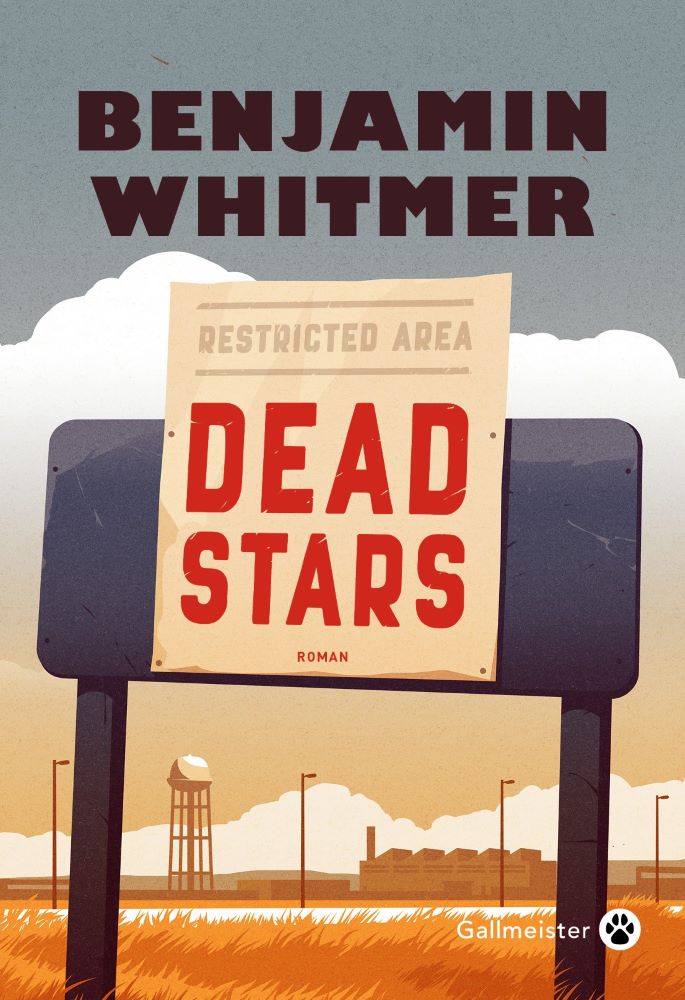Colorado, 1986. Dominated by the Stonewall company and its federally funded plutonium factory, Plainview is a town totally dependent on its sole employer. This is where Hack Turner, a blue-collar worker, lives with his children: his seventeen-year-old daughter Nat, and his fourteen-year-old son Randy. One evening when Hack is away, Nat calls her father to tell him that Randy is missing. Three days of frantic searching follow, during which the town of Plainview turns against the Turner family. The shadow of Hack’s father has loomed over the town for decades, and now Hack has revealed secrets about the plutonium factory after a friend was injured in an accident. The dangerous truth about the factory threatens to shake the foundation of the town apart, just as the truths uncovered about the Turners threaten to do the same to the family.
Available: France
French translation by Jacques Mailhos.
"With this twilight and traumatic new novel, Benjamin Whitmer brings to a climax a formidable series devoted to company towns. Dead Stars retraces, in dazzling style, the pathetic quest of an angry man, swallowing at every moment a rage that tastes like bile, and delicately paints the poignant portrait of a painfully united and deeply dysfunctional family. But this wonderful noir novel goes even further .... Benjamin Whitmer has undoubtedly just signed his most ambitious and accomplished book to date." — Rolling Stone
"For more than ten years, Whitmer has only signed masterpieces. Let's salute the flair of Éditions Gallmeister: the works of this immense writer are not even published in his own country." — Le Figaro Magazine
"Dead Stars is a novel of unusual strength that attacks the myths of the American West head-on. The wide open spaces, the landscapes and the infinite skies, synonymous with unbridled freedom, a world open to all possibilities where everyone, if they take the means, can realize their dream. For 600 pages, Benjamin Whitmer works, with hellish rage, to demolish these myths." — Michel Abascat, France Inter
"Dead Stars is an autopsy of rural and working America in the eighties." — Livres Hebdo
"To the rhythm of slow blues charged with electricity, Benjamin Whitmer depicts his characters fighting against doubt, violence and radioactive nightmare." — L'Alsace
"It is certainly his most personal novel."— France 3 Aquitaine
"'I don't read books about what it's like to be vaguely unhappy in Connecticut,' says a character. Thankfully this author chooses to write the other kind." — Lire
"Dead Stars magistrally closes Benjamin Whitmer’s trilogy around company towns started with Evasion." — Focus/Vif
"Just like Hack's daughter Nat, we come away with a 'rivet of sorrow' embedded in our stomach - which, once removed by the denouement so banal as to be appalling, leaves a gaping hole of melancholy." — Télérama
"Between the pages there are smells of blood, gunpowder, smoke. Hack continues his quest even if it means discovering and accomplishing the worst. Extremely dark, Dead Stars nevertheless ends with a glimmer of hope, a circle of light." — Culture 31
"All that remains for these characters, as for dead stars, is their hard core: their luminous shine disappears over the course of their tragic existence."— Les Notes
"With Benjamin Whitmer, who lives in Colorado with his two children, the noir novel lives up to its name. The dark side of his characters comes from the darkness of the world around them: lives shattered by addictions, separations, violence, thankless jobs." — Oest France
"Dead Stars is the anti-page-turner, there is a slowness to the story. Benjamin Whitmer takes his time, the plot almost one could say takes a back seat because the interest of the text is elsewhere. It is in the language, magnificent, grandiose, very very well translated by Jacques Mailhos .... And beauty also in the darkness, the darkness of everyday life, the darkness of complicated family relationships, this abysmal darkness which mixes with raw violence." — France Inter
